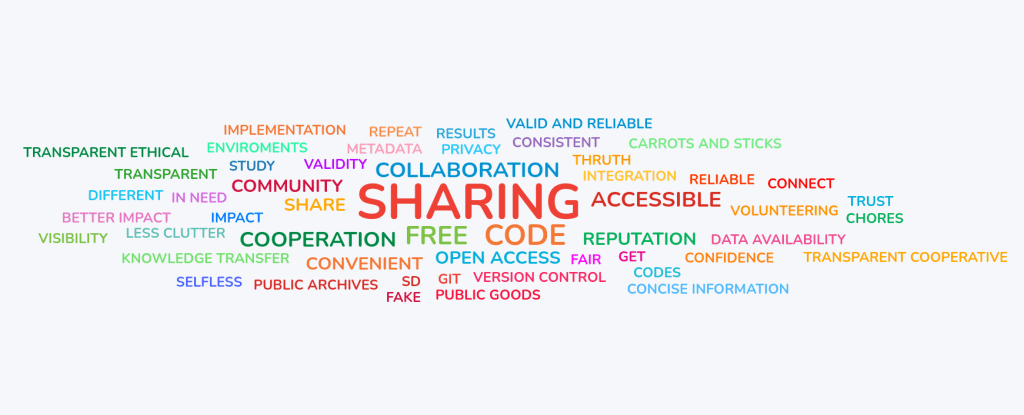PUBLISH YOUR QUALITATIVE DATA! EXPERIENCES FROM RESEARCH INTO THE FUTURE TRAVEL BEHAVIOUR

Baiba Pudane is a fourth year PhD student at TU Delft Faculty of Technology, Policy and Management (TPM). Baiba’s doctoral research is part of a larger project that looks into spatial and transport impacts of automated driving (in short: STAD). Her research is about travel behaviour modelling for the future era with automated vehicles. That involves describing and modelling, based on information provided by travellers, how people’s travel behaviour might change once they have access to an automated (or self-driving) vehicles. For example, if commuters do not need to drive their cars, what kind of activities they will do whilst on their journey? Due to the flexibility offered by the automated cars, will commuters travel further distances for work?

To answer these and other questions, Baiba collects qualitative and quantitative data using surveys, interviews and group sessions. For example, surveys are used to collect quantitative data from respondents who design their daily travel and activity patterns in a controlled survey environment.
Baiba Pudane
This data is then combined and interpreted using classical microeconomic models, which are adjusted for this purpose. These calibrated models can help to anticipate future travel behaviour developments – for example, possibly increased car-use and traffic congestion, which are important for transport policy making for the automated vehicle future.
However, since travel behaviour in the future might change drastically, the classical models may no longer be applicable. Therefore, an important part of Baiba’s research is devoted to revising and proposing alternatives to classical models. Here, qualitative data is valuable for exposing any potentially missing links in travel behaviour models to the analyst . For example, if travellers are able to pursue complex activities during travel, how would that impact their daily activity patterns beyond the travel episode?
When working with her data, Baiba invests a considerable amount of time in data processing . For the qualitative data, this processing involves anonymization of the data to protect the identity of individuals, and converting it into data that can be later used for the analysis. In her qualitative study, she used content analysis method, meaning that transcribed interview data is assigned codes corresponding to the ideas mentioned therein. However, the process of assigning codes is subjective.
“The way the data is analyzed can be subjective according to who is looking at the data and how this person chooses to categorize the data. So, likely the study is not strictly reproducible, partly because the codes assigned to the responses will differ if another researcher does the interpretation. That’s why it is a good practice to publish the data.”
Baiba has used 4TU.ResearchData to publish datasets associated to her publications and she plans to continue doing it in the future.
“Journals encourage the publication of data, but it is not mandatory yet. I like the idea of publishing my data. Since a lot of the literature that I use in my research is from 1960-70s, I realise how long (hopefully!) my research outcomes might still ‘live on’ in the future. Publishing my data allows me to ensure that my results can be understood and perhaps even reproduced, even if I may not be able to find the relevant files anymore. Furthermore, especially qualitative data is rich – it can be used for several research questions. Why not maximise the return-on-investment by allowing other researchers to re-use it?”
Baiba also tells us that using 4TU.ResearchData for publishing her data has several advantages like making her research more visible and that it is very easy to get a DOI assigned to the datasets which can be added to publications making the data citable. She also highlights the advantage of data preservation when using the archive.
“It is not yet a common practice in my field to publish data. Some researchers publish the program code, for example, on their personal website, which is very useful, but they rarely publish the data. An advantage of using the 4TU.ResearchData archive is that it ensures a long-term storage and availability of the data (15 years) unlike a normal website.”
Cover image by Free-Photos via Pixabay
Links:




